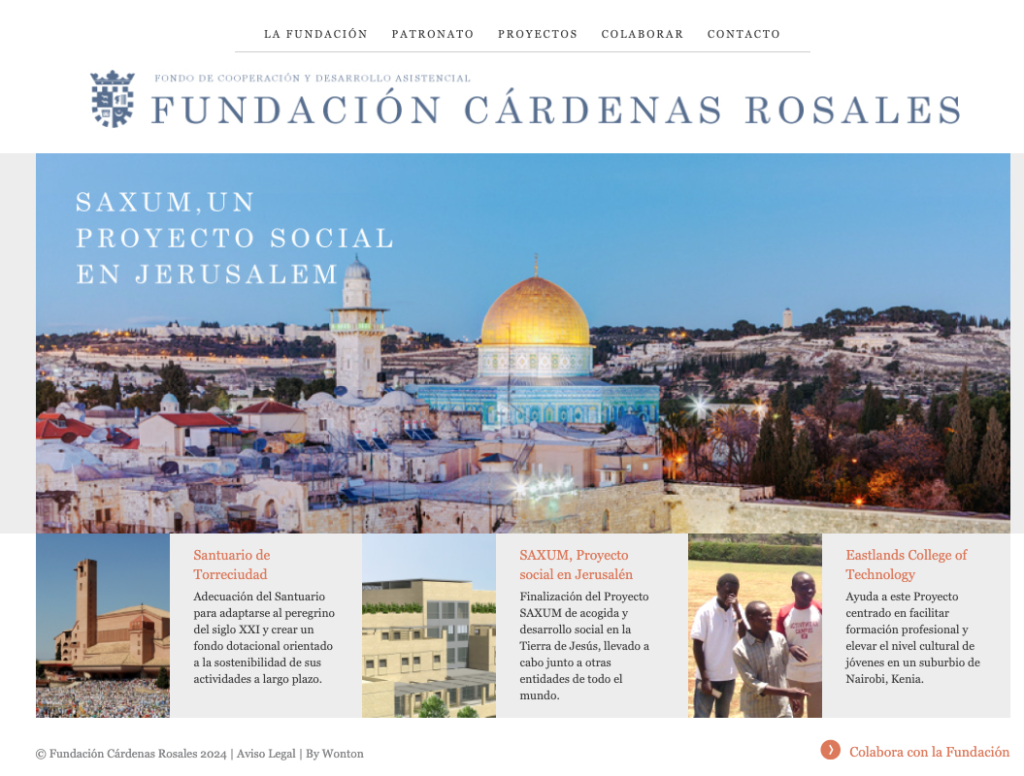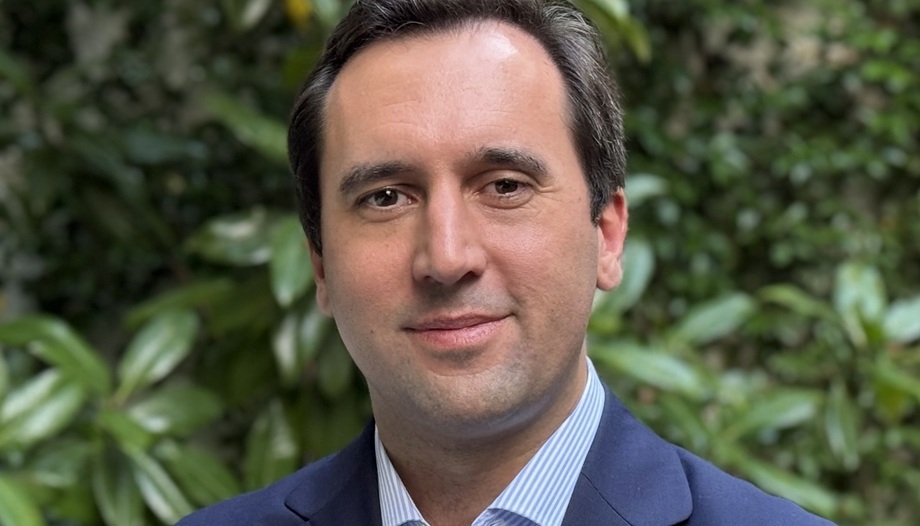Fernando Gonzalez is a member of the family that created the Cardenas Rosales Foundation. This lawyer, economist and expert in financial advice has been collaborating, for years, in an altruistic way with the Foundation, a civil entity that cooperates in Spain and also at an international level in numerous projects of a social nature and in favor of the family and youth.
In addition to this, the Foundation also works in the promotion and care of priestly vocations and in the dissemination and rooting of Europe's Christian roots.
What is the origin and mission of this Foundation?
More than thirty years ago, my great aunt Ana Rosales and her son Alfonso Cárdenas, a priest, decided to perpetuate the financial support they had offered throughout their lives to needy people and non-profit institutions. With enormous generosity, they contributed their family patrimony and created this civil foundation.
The purpose of our foundation, as it happens in all entities of the same nature, is to cooperate with the State in the achievement of different social purposes. Article 34 of the Spanish Constitution recognizes, among the rights and duties of citizens, the right of foundation in accordance with the Law.
In the Foundation we help in social projects of many different types, which are in line with the wishes of the founders, and after having studied and assessed them in the Board of Trustees.
How are the Foundation's projects financed?
-The different projects are financed thanks to the income from the foundation's own assets, as well as the generous support of individual donors and other institutions of civil society.
Like all foundations, we work on a non-profit basis, and the trustees do not receive any remuneration for our service.
The public administration, through the Protectorate of Foundations, ensures that the activity is carried out in accordance with the regulations and rules established by law.
What is your relationship with the Prelature of Opus Dei?
-The Foundation directs its financial support and other assistance primarily to organizations whose origin and mission are inspired by the spirituality of Opus Dei.
My uncle Alfonso Cárdenas, one of the founders, was a priest at the Prelature of Opus DeiIt is therefore consistent that many of the projects that we support are apostolic initiatives promoted by people from the Opus Dei in different countries.
In the Board of Trustees, we study each project with professional criteria and in accordance with our economic possibilities, and in the governing bodies of the Foundation we make the decisions we consider appropriate in each case, with absolute independence.
Now that the Holy Land is at the center of the news, we cannot fail to mention SaxumOmnes has been able to learn about it first-hand, and the foundation is helping it in what way?
-From the Foundation we collaborate in this project through two entities: Saxum International Foundationbased in Italy, and the U.S.-based Association for Cultural Interchange.
It is a joy for us to collaborate in the mission of SaxumThe aim is to offer people from all over the world the possibility of reaching a personal encounter with God through a deeper and historical knowledge of the holy places where Jesus lived, preached and acted.

I understand that explaining each project in detail would exceed the space of this interview, but could you summarize or tell us something about other projects that the Cárdenas Rosales Foundation has outside Spain?
Together with other international entities, we work in socially depressed areas of sub-Saharan Africa, and also in Latin America, in projects related to the health, care and training sectors.
We are currently supporting two health projects in Côte d'Ivoire: the medical and social center Waléin Yamoussukro and the medical dispensary Ilombáin the region of Bingervilleon the outskirts of Abidjan.
In Kenya, we were able to help Eastlands College of Technology, which for more than twenty years has been providing vocational training in electronics and communications technology to more than 5,000 disadvantaged young people, helping to facilitate their entry into the job market.
In Guatemala and the Dominican Republic we have two other very similar projects.
And can you tell us about the Foundation's activity in Spain?
-In Spain, we support many different initiatives. For example, for a number of years, we have helped to cover part of the deficit in the Torreciudad sanctuary. Every year this Shrine generates a deficit of between 0.5 and 1 million Euros. For the Foundation, this aid is a very important effort that we will try to maintain over time, according to the resources available at any given time.
With this generous effort of many people, and thanks to a special campaign for donations that was organized several years ago, we have been able to meet the request for help to this Marian sanctuary, in the province of Huesca, which is a true place of peace and devotion to the Blessed Virgin and is open every day of the year to anyone who wishes to visit it.
Precisely because of this continued collaboration with the Shrine and the diocese, I would also like to mention that the Board of Trustees of the Cárdenas-Rosales Foundation unanimously decided to cancel an important debt, contracted in its day by the diocese for the construction of a parish church in the city of Barbastro, dedicated to St. Josemaría. We received a request from Bishop Ramón Herrando, then regional vicar of the Prelature of Opus Dei in Spain, since it was very burdensome for the bishopric to pay this debt. After studying it in the Board of Trustees, we decided to accept this request and we received a letter from Bishop Pérez Pueyo in which he expressed his gratitude.
Another initiative that we support, together with other public and private entities, and of which we are particularly proud, is an NGO called Nobody Alone. It is a volunteer organization that seeks to fight against unwanted loneliness, something that, unfortunately, happens in the society in which we live. They develop programs of accompaniment at home, volunteering in hospitals and nursing homes, and support to homeless people.
Being able to help the Foundation make these initiatives happen is a source of personal satisfaction, knowing that it is a way to develop the foundational will of my uncles and aunts.









